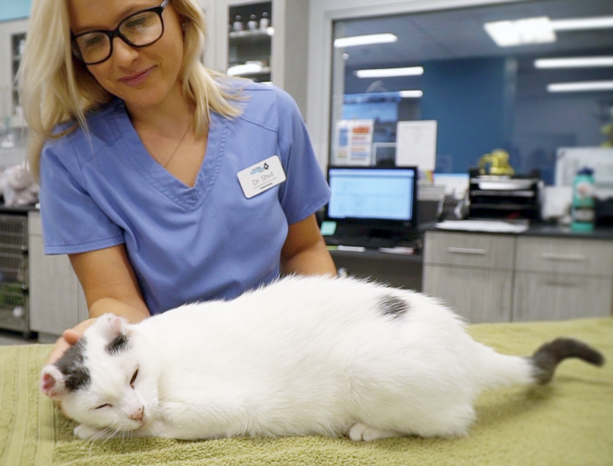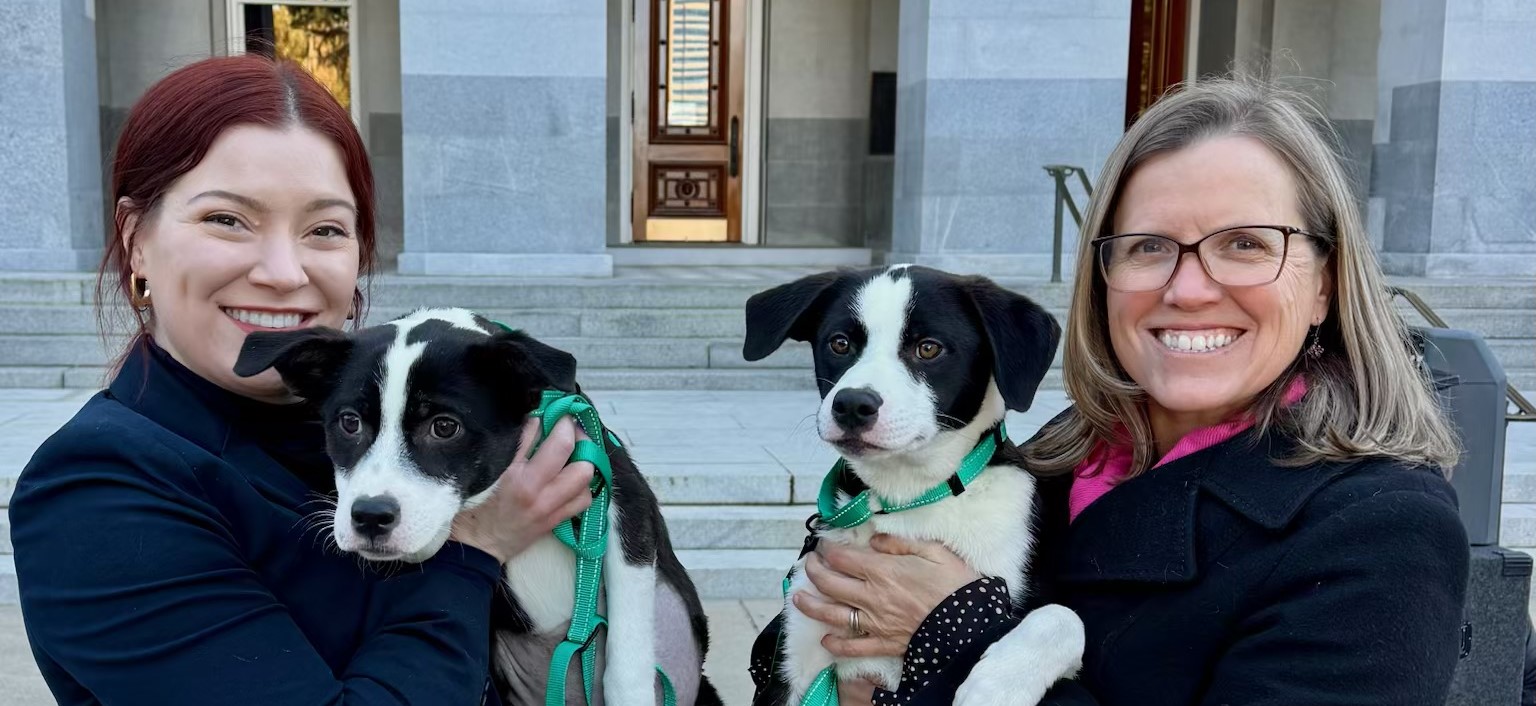San Diego Humane Society and the ASPCA Sponsor Bill to Allow Access to Veterinary Care Via Telehealth
Expanded use of telehealth will help bridge gaps in veterinary care caused by workforce shortages
 SAN DIEGO (March 21, 2023) — To address the alarming challenges pet owners are facing when seeking veterinary care in California, San Diego Humane Society and the ASPCA® (The American Society for the Prevention of Cruelty to Animals®) are sponsoring a bill that would allow increased access to services via telehealth. AB 1399 Veterinary medicine: veterinarian-client-patient relationship and veterinary telemedicine, introduced by Assemblymember Laura Friedman (D-Glendale) and Assemblymember Josh Lowenthal (D-Long Beach), will empower licensed California veterinarians to establish a veterinarian-client/patient relationship through video technology, and to assess when an animal needs to have an in-person examination and when veterinary telehealth would be a safe treatment decision.
SAN DIEGO (March 21, 2023) — To address the alarming challenges pet owners are facing when seeking veterinary care in California, San Diego Humane Society and the ASPCA® (The American Society for the Prevention of Cruelty to Animals®) are sponsoring a bill that would allow increased access to services via telehealth. AB 1399 Veterinary medicine: veterinarian-client-patient relationship and veterinary telemedicine, introduced by Assemblymember Laura Friedman (D-Glendale) and Assemblymember Josh Lowenthal (D-Long Beach), will empower licensed California veterinarians to establish a veterinarian-client/patient relationship through video technology, and to assess when an animal needs to have an in-person examination and when veterinary telehealth would be a safe treatment decision.
Currently, California regulations prohibit veterinarians from effectively using telehealth, even barring licensed veterinarians from giving simple advice and direction to pet owners through telehealth unless the owners bring their animals into the veterinary hospital. Pet owners are forced to wait for hard-to-get appointments so that veterinarians can perform in-person physical examinations of an animal as a prerequisite to providing almost any medical recommendations. The law requires veterinarians to conduct a new in-person examination each time that an animal (even a regular patient of the vet) has a new veterinary problem, including minor and common ailments, or for routine prescriptions. AB 1399 would make veterinary care more accessible for all pet owners, especially for people in remote or underserved areas with few or no veterinarians and those who face financial, geographic and logistical obstacles getting pets to a clinic.
Telehealthwould also be a huge benefit to shelters across the state. “Shelters with veterinarians on staff may face situations where their veterinarians can’t be on the premises but can still provide care through telehealth,” said Dr. Gary Weitzman, president and CEO, San Diego Humane Society. “For animal shelters without veterinarians on staff, third-party veterinarians may be able to provide valuable, lifesaving services virtually.”
“Given the critical shortage of veterinarians, it is unconscionable that outdated veterinary regulations prevent California pet owners from accessing veterinary virtual care. As we have seen in human healthcare, safe and convenient telemedicine technology can help bridge gaps in care caused by workforce shortages, but in California, red tape blocks California-licensed veterinarians from providing telemedicine services,” said Brittany Benesi, senior director of state legislation for the ASPCA’s Western division. “Telemedicine can reduce animal suffering, address financial and logistical barriers to veterinary care, keep pets in their homes, and extend the capacity of animal shelters to serve animals and their communities by increasing access to veterinary care. We are grateful to Assemblymember Friedman and Assemblymember Lowenthal for their leadership on this issue, and urge state lawmakers to pass A.B. 1399 to enable veterinarians to use technology to protect the pets who need it most.”
"During the pandemic, we saw how effective telemedicine can be for human healthcare, so why not apply this working model to veterinary care where there is a huge shortage?” said Assemblymember Laura Friedman (D-Burbank). “Telemedicine is a proven, safe means for delivering care. With this bill, we can prevent thousands of animals from needlessly suffering.”
“The pandemic accelerated our thinking on how we access healthcare and that experience has proven that not all medicine needs to be practiced in person,” said Assemblymember Josh Lowenthal (D-Long Beach). “I am proud to be a joint author on AB 1399, which takes what we learned from the pandemic and expands telehealth access to veterinary medicine. Expanding access to telemedicine is particularly important for humans and animals who live in rural locations, lack access to transportation, or have other mobility issues. As we face a statewide shortage of veterinarians, the virtual house call is an excellent option for our pets to improve access to healthcare, when deemed appropriate by an attending veterinarian.”
"California is facing a critical and urgent shortage of trained veterinarians, and as a result, our state's most vulnerable animals are suffering needlessly because of lack of access to care," said Dr. Jennifer Scarlett, CEO of the San Francisco SPCA. "Introducing telemedicine practices could help fill that critical service gap and allow more animals to receive much-needed medical care. Telemedicine is accepted in human medicine and proven to be beneficial in providing care to nonverbal patients through caretakers. It is past time for the veterinary profession to modernize and address the care gap.”
Top Three Reasons Why Veterinary Telehealth is Needed:
- California’s Veterinary Care Accessibility Score has a failing grade of 47 out of 100, according to the Access to Veterinary Care Project.
- Nearly a third (50 million) of the nation’s pets don’t see a veterinarian at least once a year, according to the American Veterinary Medical Association.
- An estimated 75 million pets in the U.S. could be without veterinary care by 2030 if we do not update our approach to providing these services, according to a study from Banfield Pet Hospital.
Finally, an added bonus of telehealth: Veterinary exams are stressful for most dogs and cats. In the clinic environment, pets are sometimes separated from their owners for exams, and, in many cases, the separation results in even greater stress. This can mask issues that led pet owners to seek care in the first place.
To learn more about AB 1399, its background and the organizations that are in support of this bill, click here.
To read the bill language, click here.
Published: March 21, 2023








